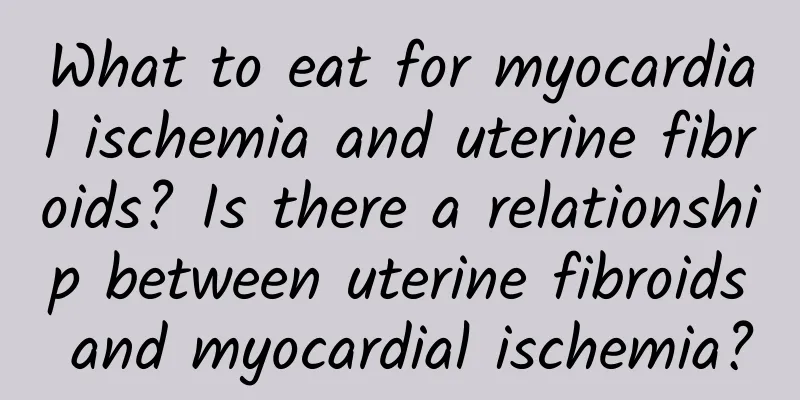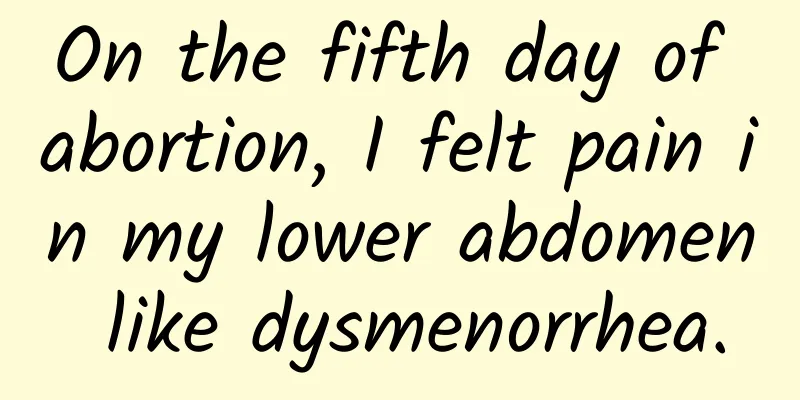What to eat for myocardial ischemia and uterine fibroids? Is there a relationship between uterine fibroids and myocardial ischemia?

|
What to eat for myocardial ischemia and uterine fibroids? Is there a relationship between uterine fibroids and myocardial ischemia? Uterine fibroids are a common disease in women, and myocardial ischemia refers to insufficient blood supply to the heart. Although the two seem to have no direct connection, there is a certain correlation between them. This article will explore the relationship between uterine fibroids and myocardial ischemia, and give some dietary suggestions that can help improve these two conditions. Uterine fibroids refer to benign tumors that occur in the uterine wall or myometrium. Although uterine fibroids themselves do not cause myocardial ischemia, they can indirectly affect heart health. Uterine fibroids can cause uterine bleeding, anemia, and thus affect the blood supply to the heart. Severe anemia can lead to myocardial ischemia, causing symptoms such as angina pectoris. So how can we improve both of these situations? Here are some suggestions: 1. Maintain a balanced diet. Diet is very important for improving heart health and the symptoms of uterine fibroids. It is recommended to consume a variety of foods, including vegetables, fruits, whole grains, and proteins. It is very necessary to reduce the intake of red meat and high-fat foods. 2. Increase your intake of dietary fiber. Dietary fiber helps lower cholesterol levels and reduce the risk of atherosclerosis, thereby improving cardiovascular and cerebrovascular health. In addition, dietary fiber can promote intestinal peristalsis, prevent digestive problems such as constipation, and help alleviate the symptoms of uterine fibroids. It is recommended to consume high-fiber foods such as beans, grains, and fresh vegetables. 3. Control the salt intake in your diet. Excessive intake of salt will increase blood pressure levels, increase the burden on the heart, and increase the risk of myocardial ischemia. Similarly, excessive salt intake will also cause edema and aggravate the symptoms of uterine fibroids. Therefore, it is recommended to limit salt intake and increase potassium intake appropriately, such as eating some potassium-rich foods such as bananas and potatoes. 4. Increase the intake of omega-3 fatty acids. Omega-3 fatty acids are very important for heart health. They can lower cholesterol levels, reduce the risk of atherosclerosis, and prevent myocardial ischemia. In addition, some studies have found that omega-3 fatty acids also have a certain inhibitory effect on uterine fibroids. It is recommended to consume foods rich in omega-3 fatty acids, such as fish and flax seeds. In summary, although uterine fibroids and myocardial ischemia seem to have no direct relationship, uterine fibroids can indirectly affect heart health. By controlling diet, increasing the intake of dietary fiber and omega-3 fatty acids, and limiting salt intake, heart health can be improved and the symptoms of uterine fibroids can be relieved. Of course, in the face of these two situations, it is also necessary to follow the doctor's advice and undergo treatment and surgery in a timely manner. |
<<: Why do we need to do curettage for adenomyoma? How to treat adenomyoma?
Recommend
Do not ignore the cause of mild cervical erosion
Understanding the causes of mild cervical erosion...
How much does an abortion cost? How should I take care of my body after an abortion?
When a man and a woman have no pregnancy plans bu...
What are the abnormal symptoms of menstruation before menopause?
Symptoms of abnormal menstruation before menopaus...
How to treat glandular atrophy
The treatment of glandular atrophy requires a tar...
Experts briefly analyze the common symptoms of chronic cervicitis
The symptoms of chronic cervicitis are a matter o...
Analysis of the prevention methods of vaginitis
Vaginitis is not only a disease of married women,...
Cervical erosion may also cause some bladder symptoms
Cervical erosion may also cause some bladder symp...
Good life can better prevent cervicitis
Most patients with cervicitis tend to ignore earl...
Is miscarriage a miscarriage? What is the difference between miscarriage and miscarriage?
Getting pregnant is a happy thing, but if the bab...
A brief analysis of the causes of cervical erosion
There are many reasons for cervical erosion, and ...
Will eating white rice make you fat? Misunderstood! Not the root cause of obesity
(Text by Professor Wu Jiacheng of Chemistry) In t...
How to prevent cervicitis?
Cervicitis is a common gynecological disease, and...
Will uterine cysts affect life expectancy?
Will uterine cysts affect the patient's life ...
What are the symptoms of pelvic inflammatory disease and how to identify pelvic inflammatory disease
Inappropriate drug treatment not only has no ther...
Does endometrial tuberculosis need regular examination?
Endometrial tuberculosis is already a very common...









